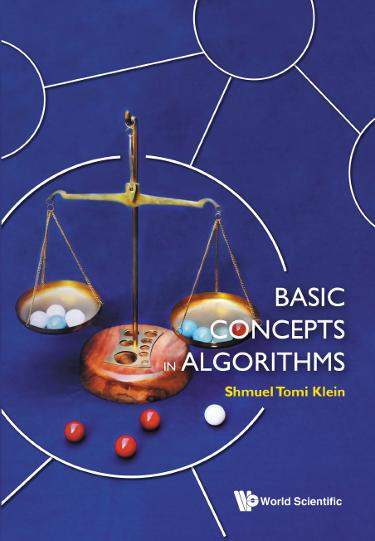
Credit: World Scientific
Every programmer is faced with a double challenge. There is, on the one hand, a need to master some programming language to overcome the technical hurdle of conveying our intentions to a machine that should be able to execute a well-defined sequence of commands–This aspect of how to write programs is taught in programming courses, generally at the very beginning of a Computer Science curriculum. The other facet of the problem is, however, the crucial issue of what actually should be done to accomplish a specific task. The necessary expertise to answer this question is acquired in the study of the theoretical sides of the art of writing computer programs.
Basic Concepts in Algorithms is the result of Shmuel Tomi Klein’s several decades of teaching experience in data structures and algorithms and assumes its readers have some basic knowledge of mathematics and the fundamental programming building blocks like queues, stacks, trees, hash tables and the like. It focuses on more advanced paradigms and methods combining these blocks and amplifying their usefulness in the derivation of algorithms, including the main steps of their design and an analysis of their performance.
The author has tried to reproduce his oral teaching style in writing, believing in the didactic benefits of associative learning, in which one topic leads to another related one. Though the attention may be diverted from the central currently treated subject, it is the cumulative impact of an entire section or chapter that matters.
Most of the algorithms are also given formally in pseudo-code. The choice of topics reflects, as usual, the personal taste of the author but consists of what many could agree to be the basic ingredients and major cornerstones of a body of knowledge on algorithms. Each chapter comes with its own set of exercises, many of which have appeared in written exams. Solutions to most exercises appear in the Appendix.
Basic Concepts in Algorithms retails for US$58 / £50 (paperback) and US$118 / £105 (hardcover) and is also available in electronic formats. To order or know more about the book, visit http://www.
###
About the Author
Shmuel Tomi Klein started teaching in high school, repeating to his classmates almost daily the lectures of their mathematics teacher. As a Computer Science undergraduate at the Hebrew University of Jerusalem, he acted as teaching assistant in the Statistics Department and has since given courses and lectures on data structures, algorithms and related topics, in English, French, German and Hebrew.
Klein’s research focuses on data compression and text processing algorithms. He is a full professor and former chair of the Computer Science department at Bar Ilan University, Israel. His book Basic Concepts in Data Structures was published in 2016 and he is a co-author of more than 100 academic publications and 10 patents. He is on the editorial board of the journal Information.
About World Scientific Publishing Co.
World Scientific Publishing is a leading international independent publisher of books and journals for the scholarly, research and professional communities. World Scientific collaborates with prestigious organisations like the Nobel Foundation and US National Academies Press to bring high quality academic and professional content to researchers and academics worldwide. The company publishes about 600 books and over 140 journals in various fields annually. To find out more about World Scientific, please visit http://www.
For more information, contact Amanda at [email protected].
Media Contact
Amanda Yun
[email protected]
Original Source
https:/




